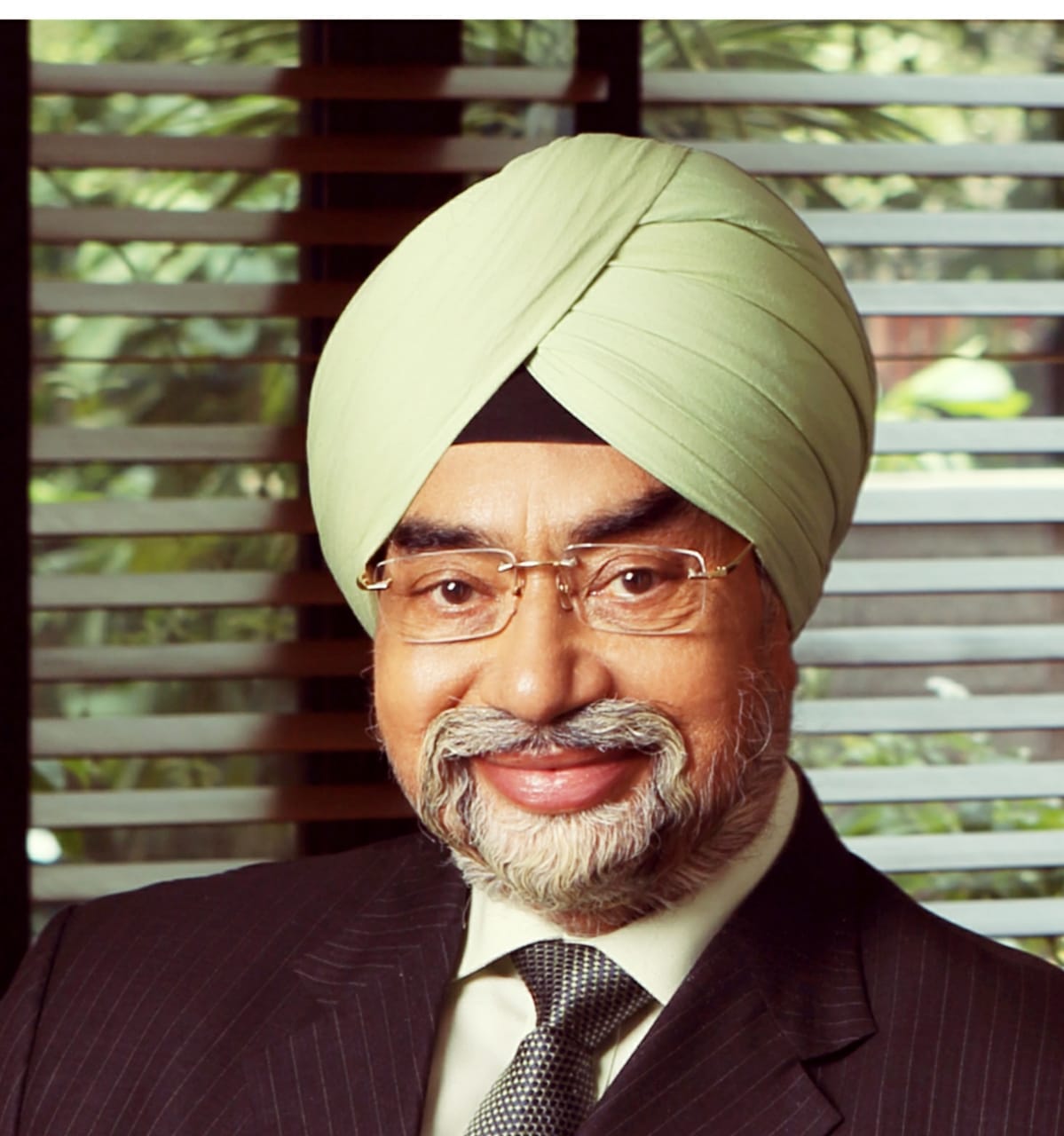BACKGROUND
Question 1: In today’s world, where the people opt for mainstream lawyering or sit as a judge, what made you choose arbitration as a career at a time when it was not that prevalent in India?
Answer: I must admit that my career in arbitration was not the result of a planned course of action. It was sheer serendipity that led me to the world of international commercial arbitration. My initiation into the legal profession was as a greenhorn litigator at the Bombay High Court, devilling at the chambers of Senior Advocate S Venkiteswaran (Venki), regarded by many as the guru of maritime and admiralty laws in India. After having spent a few challenging but memorable years at the Bombay bar, I decided to sail on a ship to Singapore to pursue an LLM at the National University of Singapore (NUS). During the course of my LLM programme, I got to know that the Singapore International Arbitration Centre (SIAC) was looking to recruit an India-qualified lawyer. I applied and was offered the position, subject to me successfully completing my LLM. The SIAC position was effectively my entry into the world of international commercial arbitration.
Question 2: You were part of the expert committee under the Law Commission of India to assist in the preparation of amendments to the Arbitration and Conciliation Act, 1996. How would you say that the Act has changed the outlook of the country towards arbitration and what is your viewpoint regarding the more recent amendments of 2019?
Answer: It was an absolute honour to be part of the expert committee assisting the 20th Law Commission of India in preparing its 246th Report on ‘Amendments to the Indian Arbitration and Conciliation Act, 1996’. The 2015 amendments to the arbitration act were largely based on the recommendations made by the Law Commission in its 246th Report.
In my view, these amendments have been a game-changer for arbitration in India, ushering in a new era for arbitration in the country. They have injected dynamism coupled with greater discipline and integrity into the manner in which arbitrations are conducted in India.
As regards the 2019 amendments, concerns had been raised over certain provisions of these amendments. Some experts have compared it to the proverbial curate’s egg – mostly good but bad in parts. However, it appears that the government has its ears to the ground, and has addressed some of these concerns via the Arbitration and Conciliation (Amendment) Act, 2021.
Question 3: Not many might be well aware that you also hold specialisation in maritime laws from the National University of Singapore. India has huge surrounding water bodies and hence the scope for dispute. In view of the same, we want to know, do you see the sufficiency of the framework of Indian Maritime Laws as they have evolved in colonial times to handle disputes in this area.
Answer: In addition to an LLM with maritime law as one of my majors, I also hold a Post Graduate Diploma in Shipping Management. Therefore, it was no surprise that I started off my career as a lawyer specialising in admiralty and maritime laws.
With a 7517 km coastline, c.14,000 km of navigable inland waterways, and a strategic location that sees many of the world’s major shipping routes passing through Indian territorial waters, India can be counted as a major maritime nation. Further, it would be important to note that the maritime sector accounts for c. 95% of India’s trade by volume and 70% by value. To facilitate all of this, there is an elaborate ecosystem of laws, many of which have roots in colonial laws dating back to the nineteenth century, which has been periodically updated over the years.
2018 saw the coming into force of the Admiralty Act which incorporates into Indian law the principles of international maritime conventions and provides a comprehensive statute for enforcement of maritime claims in India.
Question 4: How do you view India’s preparedness towards emerging as an arbitration hub? Do you see a lack of confidence of parties in international commercial arbitration in the Indian alternative dispute resolution system while preferring a seat of arbitration outside India?
Answer: India has taken definitive steps towards enhancing its attractiveness as an arbitration-friendly jurisdiction. The recent initiatives of the two main sectoral players, the judiciary and the government, do hold out the promise of a brighter future. Be that as it may, it is unlikely that India will emerge as an arbitration hub overnight. It would require persistent, consistent and coordinated efforts on behalf of all sectoral players for India to emerge as an arbitration hub, at some point in the not too distant future. I remain optimistic as ever!
The reforms to the arbitration regime, which were kick-started by the 2015 amendments to the arbitration act, has seen a perceivable shift in the perception of international parties to the Indian arbitration system. A manifestation of this change in perception has been that many such parties doing business in, and through India is more comfortable now agreeing in their contracts for India to be the seat for their future arbitrations.
Question 5: Arbitration is now emerging as independent practice. Is it high time to form an arbitration bar too?
Answer: Arbitration is indeed slowly emerging from the shadows of litigation as an independent specialist practice area in India. Further, given that there is no dearth of arbitration work in India, I believe it would be extremely rewarding for dispute resolution lawyers to specialise in arbitration. This would also have the additional spin-off benefit of creating a cadre of specialist arbitration lawyers, who would also serve as a pool of readily available, locally-based potential arbitrators. All of this would definitely aid in creating an enabling environment for India to emerge as a more arbitration-friendly jurisdiction.
In recent years, there has been a move to constitute a specialised arbitration bar comprising of lawyers whose practice is predominantly arbitration focussed.
The Indian Arbitration Forum (IAF) is a first-of-its-kind initiative by leading arbitration practitioners to establish an arbitration bar in India. It recently launched a set of best practices guidelines for the conduct of arbitral proceedings. More details about the IAF is accessible at this link: www.indianarbitrationforum.com
Question 6: According to you, who are better arbitrators, the judges or non-lawyers or lawyers?
Answer: The ability to appoint an arbitrator of one’s choice is one of the many important advantages of arbitration. An arbitrator’s role is to provide a fair, efficient, legally sound, cost-effective and business-savvy resolution of a dispute. Therefore, the choice of an arbitrator needs to be exercised in mind.
Whilst legal knowledge and experience might not be necessary to be an arbitrator, it is highly desirable because at the end of the day the arbitrator has to deliver an award that has to stand the scrutiny of a court of law. Similarly, business acumen, industry experience relevant to the subject matter of the dispute are also important.
It would be pertinent to note that whilst not all retired judges make good arbitrators, a judge’s vast experience in deciding disputes does assist when sitting as an arbitrator. Similarly, not all lawyers make good arbitrators, and despite not being from the legal world, the domain knowledge and experience of technical arbitrators come in very handy in complex and highly technical disputes.
Therefore, it is really a question of “horses for courses” and the choice of an arbitrator should be made in the context of the facts and circumstances of each case.
Question 7: Recently new amendments came in the year 2019 with the aim of making India into an arbitral hub but as we see there is no specific provision regarding the emergency arbitration. What is the impact of the same?
Answer: Emergency arbitrator (EA) is a relatively recent procedural tool which gives parties the ability to seek urgent temporary interim relief which cannot wait until the constitution of the tribunal. EA procedures are increasingly becoming common in the rules of major arbitral institutions, and international institutional statistics show that these procedures have become extremely popular, especially amongst Indian parties involved in international commercial arbitration. Given that this procedural tool was yet to receive any statutory recognition in India, the Law Commission of India in its 246th Report had recommended an amendment of the arbitration statute to recognise the concept, and also awards delivered by an EA. This recommendation was once again made by the High-Level Committee (aka Srikrishna Committee) constituted by the Ministry of Law and Justice in 2017. Sadly, these recommendations did not find a place in the three recent rounds of amendments made to the arbitration act.
One manifestation of this lack of statutory recognition in light of a glaring gap in the law has been that the judiciary has had to step in and recognise the concept. A case in point is the decision of a single judge of the Delhi High Court in the Amazon v Future saga. I am quite hopeful that the government will ensure that an express recognition of this concept is included in the next round of amendments to the arbitration act.
Question 8: Your career domain has been very inspiring. Which is the most important milestone of your legal career and why?
Answer: My journey in the law could be best described as sui generis. It perhaps has something to do with my reputation as a ‘jack-of-all-trades’, which saw me start off as a litigating lawyer specialising in shipping laws, moves on as an arbitration administrator, and then evolve into a ‘double hatter’ i.e. an academic and an arbitrator.
My most challenging and rewarding professional assignment thus far was my tenure as the Founding Registrar and Director of the Indian subsidiary of the London Court of International Arbitration (LCIA India). It was a great privilege and responsibility to have been given the task of establishing and running an arbitral institution at a relatively young age of thirty-two.
Question 9: Post graduation degree for practice is not common in India. How do you see higher education in law can help evolve Indian Legal practice?
Answer: An LLM programme has great utility, even for a practitioner. It acts as a refresher course to update one’s knowledge and aids in focusing on an area of specialisation. Therefore, for the above reasons, my advice to young lawyers and lawyers-to-be would be to explore the possibility of pursuing an LLM but to do so after having spent a few years in the profession. This would make the course more meaningful and purposeful.
Further, funds permitting, if one were to pursue an LLM from a foreign university, besides adding an exotic touch to one’s CV, it would also serve as a training ground for young lawyers to be exposed to international best practices and new ideas, all of which would bode well for the future of the Indian legal profession.
Question 10: What is your advice to youngsters aspiring to be arbitrators? Which is your most inspiring quote?
Answer: My simple advice to young lawyers would be that in the early stages of one’s career, the emphasis should be to immerse oneself in the theory and practice of arbitration and aim to gather relevant and skills experience as an advocate in arbitration. The transition from being an arbitration advocate to an arbitrator is an evolutionary process. And, along the way it would also be useful to have the opportunity to take up assignments as tribunal secretary, and also enrol for specialised arbitration training offered by institutions like the Chartered Institute of Arbitrators (CIArb).
Regarding my most inspiring quote, although this may sound very cliched, I do constantly remind myself that, there is no substitute for hard work and industry in the legal profession. The harder your work, the luckier you get!
Question 11: Who is your inspiration in law and as an arbitrator?
Answer: Fali Nariman!
Question 12: How encouraging are arbitration institutions in providing legal internships to students of law?
Answer: Almost all arbitral institutions, domestic and international, have internship programmes for students and young lawyers. These internships are an excellent platform for students to understand the day-to-day working of arbitral institutions, and also an opportunity to make useful contacts that would hold them in good stead all through their professional lives. However, these internships are highly sought after, and the ensuing competition for the limited seats on offer is intense.
Question 13: What was the biggest challenge in your last role as an academic administrator?

Answer: My most recent professional assignment involved acting as the Director of the Faculty of Law at Manav Rachna University. Academia is a very different ecosystem from the professional world that I was a part of for almost two decades, and it took me some time to acquaint myself with the contours of this new world. Just when I was getting comfortable in my new avatar as an academic administrator, disaster struck with the onset of the COVID-19 pandemic. Ensuring that the teaching process continued uninterrupted, albeit in online mode, and ensuring the smooth transition from offline to online was a big challenge. An additional challenge was trying to balance the demands of my practice as an independent arbitrator, and my work at the university, where in addition to acting as Director, I was also a Professor of Arbitration Law and Practice.







 The legal framework to handle Slum Development and related issues in India
The legal framework to handle Slum Development and related issues in India





Add Comment